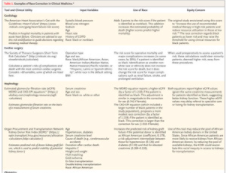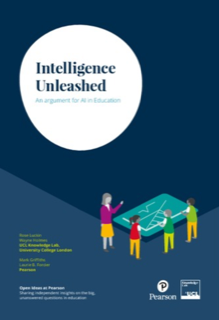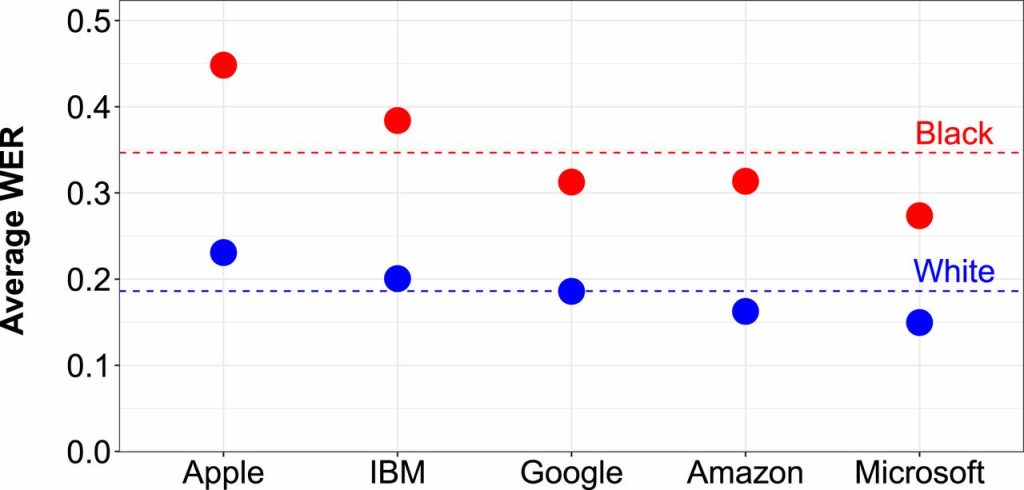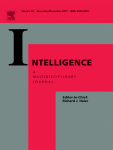Filter resources by type or complexity
All AdvancedArticleBeginnerCase StudyIntermediatePodcastProjectReportResearch PaperVideoWhite PaperInfluence of Skin Type and Wavelength on Light Wave Reflectance
The intent of the study was to determine the influence of skin type and wavelength on light reflectance for pulse rate detection. PPG sensors detecting changes in blood flow are assessed for effectiveness on dark and light skin tones. Studies have shown that green light lacks precision and accuracy, and may not read at all […]
Read More
Accuracy in Wrist-Worn, Sensor-Based Measurements of Heart Rate and Energy Expenditure in a Diverse Cohort
The ability to measure physical activity through wrist-worn devices provides an opportunity for cardiovascular medicine. However, the accuracy of commercial devices is largely unknown. The aim of this work is to assess the accuracy of seven commercially available wrist-worn devices in estimating hea… This research paper assesses the accuracy of seven commercially available wrist-worn devices, […]
Read More
Use of AI-based tools for healthcare purposes: a survey study from consumers’ perspectives
This study sheds more light on factors affecting perceived risks and proposes some recommendations on how to practically reduce these concerns. The findings of this study provide implications for research and practice in the area of AI-based CDS. Regulatory agencies, in cooperation with healthcare… This paper examines AI-based tools for healthcare from a consumer’s perspective. […]
Read More
Bias at warp speed: how AI may contribute to the disparities gap in the time of COVID-19
Abstract. The COVID-19 pandemic is presenting a disproportionate impact on minorities in terms of infection rate, hospitalizations, and mortality. In terms of infection rate, hospitalisation and mortality, the Covid-19 pandemic presents a disproportionate impact on minorities. Many believe that artificial intelligence could be a solution to guide clinical decision making to overcome this novel disease. […]
Read More
If AI is going to be the world’s doctor, it needs better textbooks
Artificial intelligence in healthcare currently reflects the same racial and gender biases as the culture at large. Those prejudices are built into the data. AI technologies are being used to diagnose Alzheimer’s disease by assessing speech. This technology could aid early diagnosis of Alzheimer’s. However, it’s evident that the algorithms behind this technology are trained […]
Read More
The Need for Use of Race Correction in Clinical Algorithms
Medicine and Society from The New England Journal of Medicine — Hidden in Plain Sight — Reconsidering the Use of Race Correction in Clinical Algorithms Physicians still lack consensus on the meaning of race within medical science; there is an ongoing debate as to whether racial and ethnic categories can reflect underlying population genetics, and […]
Read More
Addressing Bias: Artificial Intelligence in Cardiovascular Medicine
As the leading cause of morbidity and mortality worldwide, cardiovascular disease is prevalent across all populations. Artificial intelligence (AI) is providing opportunities to transform cardiovascular medicine. Medical report which examines the potential of Artificial Intelligence in cardiovascular medicine; it could hugely benefit patient diagnosis and treatment of what is the leading cause of morbidity and […]
Read More
Intelligence Unleashed – An argument for education
This research paper gives arguments for how AI can benefit our education system. It argues that AI can support teachers in giving children the best education whilst not taking away from the humanity of it. AI can be beneficial in aspects such as online tutoring, collaborative learning, and tackling achievement gaps. While it does not […]
Read More
Black Loans Matter: fighting bias for AI fairness in lending
Today in the United States, African Americans continue to suffer from financial exclusion and predatory lending practices. Meanwhile the advent of machine learning in financial services offers both promise and peril as we strive to insulate artificial intelligence from our own biases baked into the historical data we need to train our algorithms. A detailed […]
Read MoreMeasuring racial discrimination in algorithms
Measuring racial discrimination in algorithms There is growing concern that the rise of algorithmic decision-making can lead to discrimination against legally protected groups, but measuring such algorithmic discrimination is often hampered by a fundamental selection challenge. We develop new quasi-experimental tools to overcome this challenge and measure algorithmic discrimination in the setting of pre-trial bail […]
Read MoreClimate Change and Social Inequality
UN Working Paper evidence base for conceptual framework of cyclic relationship between climate change and social inequality.
Read MoreEvaluating neural toxic degeneration in language models
Real toxicity prompts Pre-trained neural language models (LMs) are prone to generating racist, sexist, or otherwise toxic language which hinders their safe deployment. We investigate the extent to which pre-trained LMs can be prompted to generate toxic language, and the effectiveness of controllable text generation algorithms at preventing such toxic degeneration This paper highlights how […]
Read More
Gender Shades: Intersectional Accuracy Disparities in Commercial Gender Classification
Gender Shades: Intersectional Accuracy Disparities in Commercial Gender Classification – MIT Media Lab Recent studies demonstrate that machine learning algorithms can discriminate based on classes like race and gender. In this work, we present an approach to e… ccording to this paper researchers from MIT and Stanford University, three commercially released facial-analysis programs from major […]
Read More
When your resume is (not) turning you down: Modelling ethnic bias in resume screening
Resume screening is the first hurdle applicants typically face when they apply for a job. Despite the many empirical studies showing bias at the resume‐screening stage, fairness at this funnelling st… CVs are worldwide one of the most frequently used screening tools. CV screening is also the first hurdle applicants typically face when they apply […]
Read More
The danger of predictive algorithms in criminal justice
A study on the discriminatory impact of algorithms in pre-trial bail decisions.
Read More
Racial disparities in automated speech recognition
Racial disparities in automated speech recognition Automated speech recognition (ASR) systems are now used in a variety of applications to convert spoken language to text, from virtual assistants, to closed captioning, to hands-free computing. By analyzing a large corpus of sociolinguistic interviews with white and African American speakers, we demo… Analysis of five state-of-the-art automated […]
Read More
‘Fake news’: Incorrect, but hard to correct. The role of cognitive ability on the impact of false information on social impressions
The present experiment examined how people adjust their judgment after they learn that crucial information on which their initial evaluation was based is incorrect. In line with our expectations, the results showed that people generally do adjust their attitudes, but the degree to which they correct their assessment depends on their cognitive ability. A study […]
Read More
Responsible AI for Inclusive, Democratic Societies: A cross-disciplinary approach to detecting and countering abusive language online
Research paper about responsible AI Toxic and abusive language threaten the integrity of public dialogue and democracy. In response, governments worldwide have enacted strong laws against abusive language that leads to hatred, violence and criminal offences against a particular group. The responsible (i.e. effective, fair and unbiased) moderation of abusive language carries significant challenges. Our […]
Read MoreLet’s Talk About Race: identity, chatbots, and AI
A research paper about race and AI chatbots Why is it so hard for AI chatbots to talk about race? By researching databases, natural language processing, and machine learning in conjunction with critical, intersectional theories, we investigate the technical and theoretical constructs underpinning the problem space of race and chatbots. This paper questions how to […]
Read MoreRacial bias in hate speech and abusive language detection datasets
A paper on racial bias in hate speech Technologies for abusive language detection are being developed and applied with little consideration of their potential biases. We examine racial bias in five different sets of Twitter data annotated for hate speech and abusive language. Tweets written in African-American English are far more likely to be automatically […]
Read MoreRisk of racial bias in hate speech detection
Risk of racial bias in hate speech detection This research paper investigates how insensitivity to differences in dialect can lead to racial bias in automatic hate speech detection models, potentially amplifying harm against minority populations.
Read More
Discrimination through optimization: How Facebook’s ad delivery can lead to skewed outcomes
The enormous financial success of online advertising platforms is partially due to the precise targeting features they offer. Although researchers and journalists have found many ways that advertisers can target – or exclude – particular groups of users seeing their ads, comparatively little attenti… Ad-delivery is controlled by the advertising platform (eg. Facebook) and researchers […]
Read More
Facial recognition
Gender Shades: Intersectional Accuracy Disparities in Commercial Gender Classification Recent studies demonstrate that machine learning algorithms can discriminate based on classes like race and gender. In this work, we present an approach to evaluate bias present in automated facial… Commercial AI facial recognition systems tend to misclassify darker-skinned females more than any other group (lighter-skinned […]
Read More